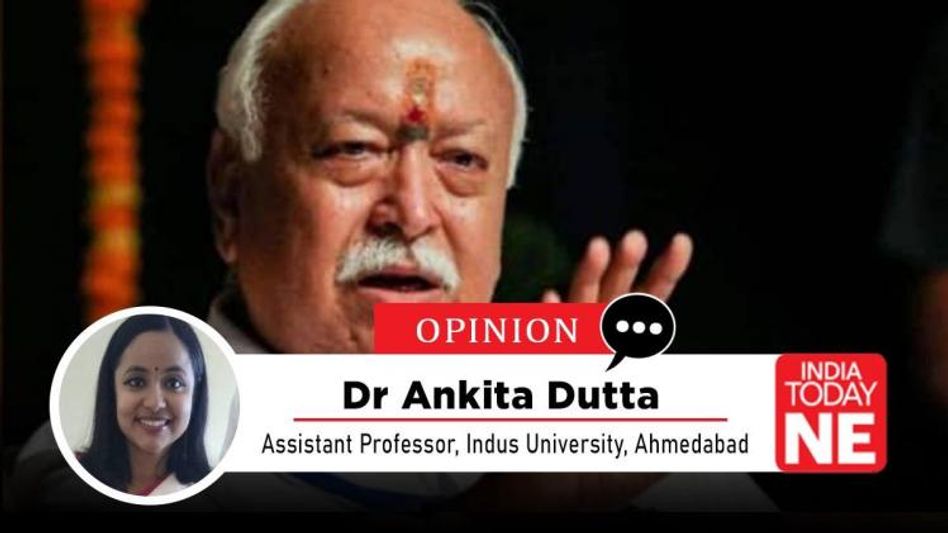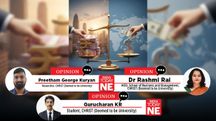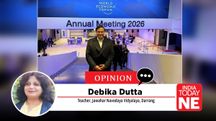Mohan Bhagwat as Rashtra Pita. Why it is an oxymoron for Bharat
Bharat is a chirantan (eternal) construct and hence there cannot be any Father of Bharat except Dharma. It’s time that we reconsider the concept of Rashtra Pita.
 Mohan Bhagwat
Mohan Bhagwat RSS. The acronym evokes different emotions in different sections of people depending on which side of the fence one sits in—and even for the fence-sitters. It has become the habit of a certain section of our own society to ridicule and demonize this organization. For them, the RSS (Rashtriya Swayamsevak Sangh) is the perennial “bête-noire”, the reflection of their exaggerated fears, mostly based on imagination. In their understanding, the RSS is the wicked organization out there to destroy the sanctity of the Indian Constitution. Hence, it is the sworn enemy of the modern Indian Secular State—secularism as conceptualized by the Constitution and practised according to its tenets.
Recently, the head of the All-India Imam Organisation, Umer Ahmed Ilyasi, referred to Mohan Bhagwat, RSS Sarsanghchalak or chief, as Rashtra Pita or “Father of the Nation”. In a bid to strengthen what a few prominent leaders of the organisation has termed as the general “samvad (dialogue) process and promote, communal harmony”, the RSS chief has been reaching out to Muslim leaders, accompanied by a few senior functionaries of the Sangh, including Indresh Kumar, patron of the Muslim Rashtriya Manch (MRM).
However, the moot point here is whether a mortal human being really needs to be deified as the Rashtra Pita of a civilisation which has stood the ravages of time across centuries. Gandhi has already been legitimized by being projected continuously as the saviour of India, and the only one for that matter. Not only that, but Gandhi has also always been projected as the ultimate symbol of sacrifice, someone who died for the cause of Hindu-Muslim unity. He is the Rashtra Pita, the Father of the Nation. Well, good enough!
But what have been the consequences of such a state of affairs? Gandhi has almost become a figure synonymous with the very existence of India after the Partition. Deification of a mortal human has proven adverse for the progress and future of Bharat. And who has reaped the fruits of such deification? Without an iota of doubt, it’s the Indian National Congress which derived absolute political power.
After 1947, Gandhi almost became some kind of a super-human, who not only led the nation towards the ultimate goal of freedom but also laid the foundation stone for a New India, which Nehru so assiduously inserted into the imagination of the populace. In the meantime, taking advantage of this, the Nehru-Gandhi family successfully established itself as the rightful heir to the legacy of Gandhi—an overwhelming figure looming large on the future course of this country.
All forms of political dividends, which have been reaped exclusively by the Congress ecosystem, have, in a way, clubbed the so-called legacy of Gandhi exclusively with them. Every now and then, the Congress party has tried to demean the contributions of other organisations and individuals by arrogantly proclaiming itself as the only one who fought for the Independence of this nation.
This, among many others, lies at the root of all problems that emerge eventually from the deification of an individual as some larger-than-life character or a ‘super-human’. As a result of this deification, Gandhi was planted into the Congress ecosystem as a means to meet the party’s long-term political objectives. Later, however, Gandhi became the heart and soul of the Congress through repeated propaganda, despite the fact that Gandhi wanted the Congress to be disbanded soon after the British had left.
The legitimacy that has been accorded to Gandhi and his ideas have established him as the unquestionable, infallible Father of the Nation. Moreover, it is through the appropriation of Gandhi that the Congress ecosystem has, for long, justified the dynastic rule of the Nehru-Gandhi family in this country for decades. Now, coming to the Sangh Parivar and Umer Ahmed Ilyasi’s deification of the RSS Sarsanghchalak as Rashtra Pita, we must understand that the ideals propagated by this organisation that claims to work for establishing a Hindu Rashtra are, in fact, the long-cherished principles of Bharatiya Sanskriti for ages.
The RSS must be subjected to honest and genuine criticism within the fold of the Sanatan philosophy and culture of Bharat in order to understand its relevance in the present times. Not subjecting the RSS to genuine criticism has today led to a situation where people have begun to identify the organisation and its ideals as synonymous with the protection and promotion of the original cause of Hindutva as espoused by this organization.
The RSS is definitely not the start and the end of the idea of Bharat or Hindu. It is just another organisation that must be studied, understood, critiqued and as well as appreciated for its contributions to nation-building. Critiquing here implies subjecting the organisation to scrutiny in all its hues and colours so as to understand its functioning better. Bharat is a chirantan (eternal) construct and hence there cannot be any Father of Bharat except Dharma. It’s time that we reconsider the concept of Rashtra Pita.
Copyright©2026 Living Media India Limited. For reprint rights: Syndications Today









